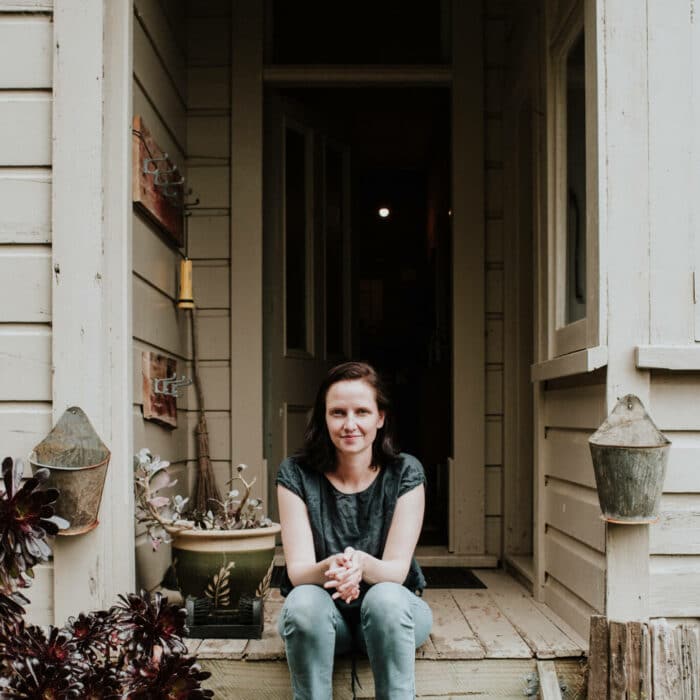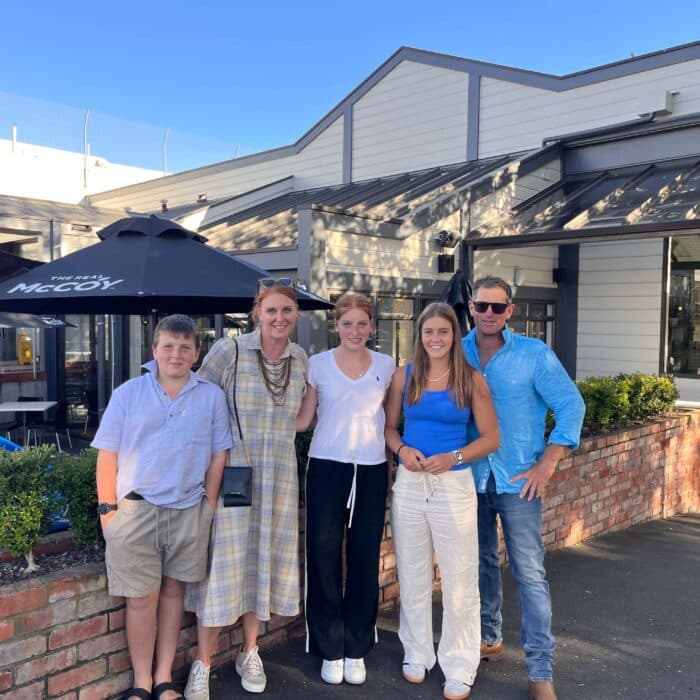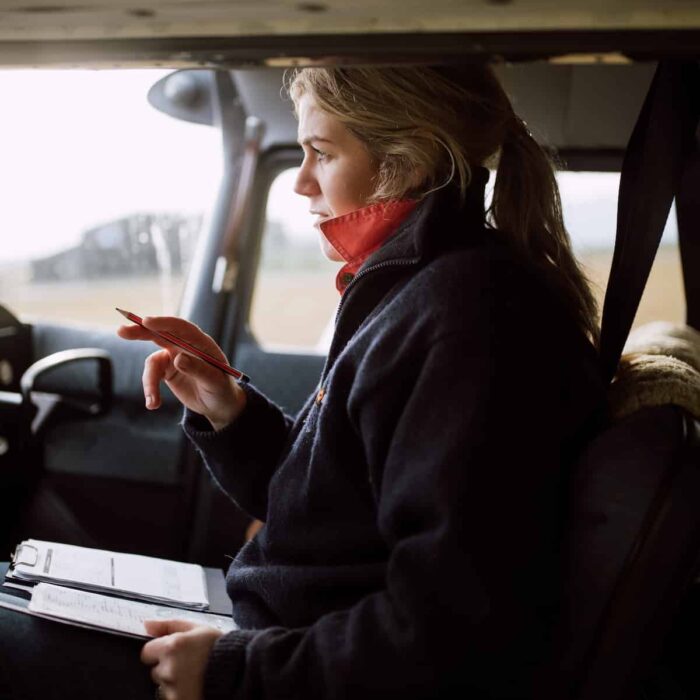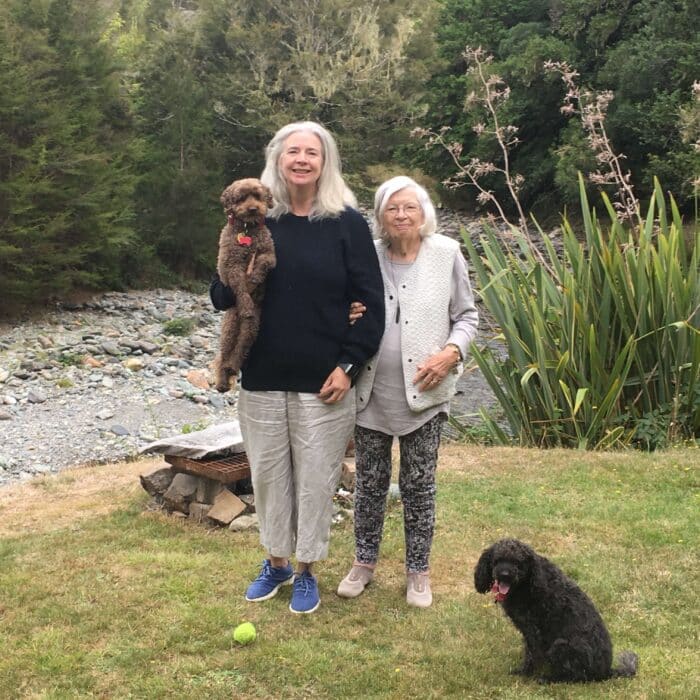
I spent a lot of time growing up with my grandparents. My grandfather was a big gardener, and he would plant by the Māori lunar calendar. There were certain times to do certain activities, but as children you never really understand or ask why. I have four children – my youngest is five and my eldest just turned fourteen. My two boys, Ōtāne and Ōuenuku, are named after different phases of the moon, and they often come home having been asked about the maramataka at kura, saying, “We don’t know why they keep asking us!” Because it’s just a part of their life, it’s not until I unpack it for them and talk about the things I do and ask them why I do it that they realise it’s about practical application.
When I went to university, we did a tiny bit of study about the Māori fishing and gardening calendar, but that was about it. It wasn’t until I got married over eighteen years ago and moved to live with my husband’s family – who had never left the land, and never left the sea – that I gained an understanding of maramataka, because they continued to use it. My husband’s grandfather, Ihaka Poata, whose maramataka we use, used to say things to me like, “Oh it’s a Whiro moon today, a new moon, so you should just take it easy and make sure you go slowly.” My understanding of modern maramataka has all come through the experience of living by it for over twenty years.
We have a one-hundred-year maramataka plan for our whānau, and that’s about the reintroduction of native plants onto our papakāinga in Ahipara, the building of eco-housing where I’m from in Motatau, being able to eat good quality organic kai, have a plentiful supply of pure wai Māori, and how present our culture will be with our descendants – knowing how to kōrero Māori and knowing their whakapapa.
My husband’s father, Herepete Poata, was always gardening, growing Māori potatoes, kūmara and lots of other foods, living on Māori land that had never left family ownership. The maramataka work I do online has really been something that has just grown with such momentum and really developed an interest and following. But it’s been a kaupapa driven from the ground up, because it comes from an understanding that we are connected to the environment.
We all love the moon: we have an affinity to it, and it’s easily identifiable most nights. What each phase of the moon is telling us is what’s happening in the land. The maramataka for me is a system of decolonisation. It’s related to our environment, and it evolved – it’s not stagnant. When we came from the Islands we brought our maramataka knowledge. All of the te reo Māori words of the maramataka are ancient Māori words that have their whakapapa from the Islands. No matter what waka we came from, all of our tūpuna who arrived to this new land of Aotearoa needed to quickly establish where the water was, what kind of different climate it was, and they aligned the phases of the moon, evolving the maramataka to the Aotearoa environment.
We are currently living in a world where we are taught that if you’re quick you’re going to win, you’ll have an advantage. But maramataka teaches us no, wait until the right time for the right action. For example, on the maramataka there’s a time to plant. My whānau and I did an experiment where we planted before the right time, and we knew it was unlikely that it would pop up, or it would be a bit stringy and get eaten by bugs because there wasn’t energy around those times. Whereas, when we waited for the right time under the right phase, there was more abundance and productivity. So with the agencies I’m working with, I’m saying it’s not just about the time to plant seeds in the garden, but also planting the seeds of a project you’d like to come into fruition.

Recently I was diagnosed with Stage IV cancer. As women, we carry a lot in our whare tangata, especially those of us who are sensitive to the world. I knew I was sick, and I kept saying to my doctor I needed to be tested, and my doctors just wouldn’t take me seriously. I went back to my doctor and said, for the third time, that they’re admitting me, so I was sent in for an emergency hysterectomy.
They had me come back in because they’d found traces of cancer. It’d spread to my lymphs, my spine and my stomach – I was given two months to live. I went home in shock – it felt like my time had been cut short, like it was over, a void of potential. I went into Te Kore, into blackness. I was filled with fear, which is not like me. So I said to myself, “Heeni, you’re not going to go through the rest of your life in this type of fear. What are you going to do about it? What do you know, and what do you believe in?”
I believe in being Māori; I believe the doctors weren’t looking at me, just what’s in front of them. I decided to use maramataka to plot out my well-being plan – my mission is to use it to heal, and my goal is to live. My tactic is to breakdown all of my time and my health treatments and everything else I am doing in my rest periods by way of maramataka planning. I’m starting to get into advocacy work for improving the health system and access for Māori. When my grandparents were alive, they lived into their eighties and nineties, and even older for their grandparents. But that’s unheard of for Māori now, and we are missing out on so much of our kuia and kaumātua wisdom.
In our world today, it is absolutely essential that we’re observing, we’re aware and we’re evolving our maramataka to be connected with a changing world. This includes relating that back to ourselves and our health and well-being. We seem to think that we can access whatever we want, whenever we want, because kai is so readily available in supermarkets. But what the world actually communicates to us through the seasons, through the maramataka, is that everything rests so that we can have sustainability. As humans, we must rest, too – we’ve been caught up in this system of high achievement, never getting sick, never getting old. But the natural world is not like this. Every phase of the moon has value if we are connected, and every phase of our life has value if we are connected.
I’m really big on changing the narrative from, “Our ancestors did this,” or, “Our ancestors watched for the signs of Matariki,” to, “We do this.” We’re still practising it, and we need to change the conversation from the past tense to the present.
Glossary. Kai, food. Kaumātua, a person of status within the whānau. Kaupapa, topic/matter for discussion. Kōrero Māori, to speak in te reo Māori. Koro, grandfather/elderly male. Kuia, grandmother/elderly female. Kūmara, sweet potatoes. Kura, school. Maramataka, Māori lunar calendar. Mātauranga Māori, Māori knowledge. Papakāinga, communal ancestral land. Rongoā, remedy/medicine. Te Kore, the formless void. Te taiao, the natural environment. Tūpuna, ancestors. Whakapapa, genealogy. Wai Māori, fresh water. Wānanga, gathering/to meet and discuss. Whānau, family. Whiro, first night of the new moon in the maramataka. Whare tangata, womb/house of humanity.
This story appeared in our Takurua Winter 2023 Edition.
Related Stories
Harriet Bremner
Harriet is out to raise her voice and live every day to the fullest – always accompanied by her number-one companion, Pops the sausage dog.
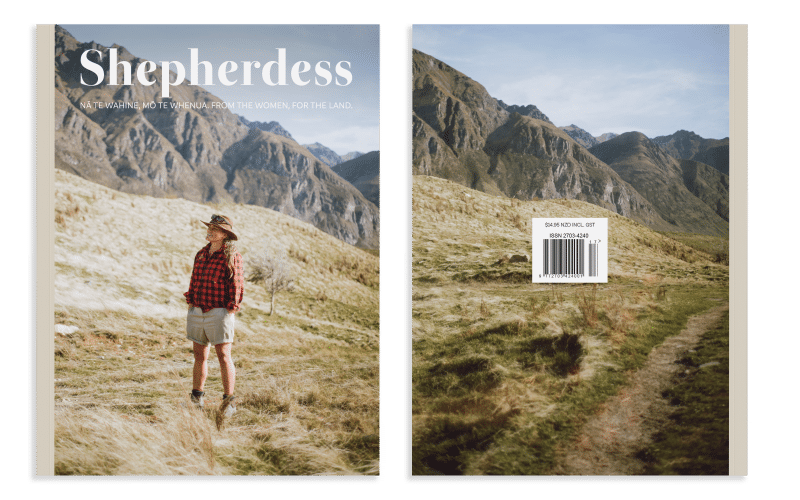
Out Now
Seventeenth Edition
Our beautiful Ngahuru Autumn 2024 Edition is out now!
